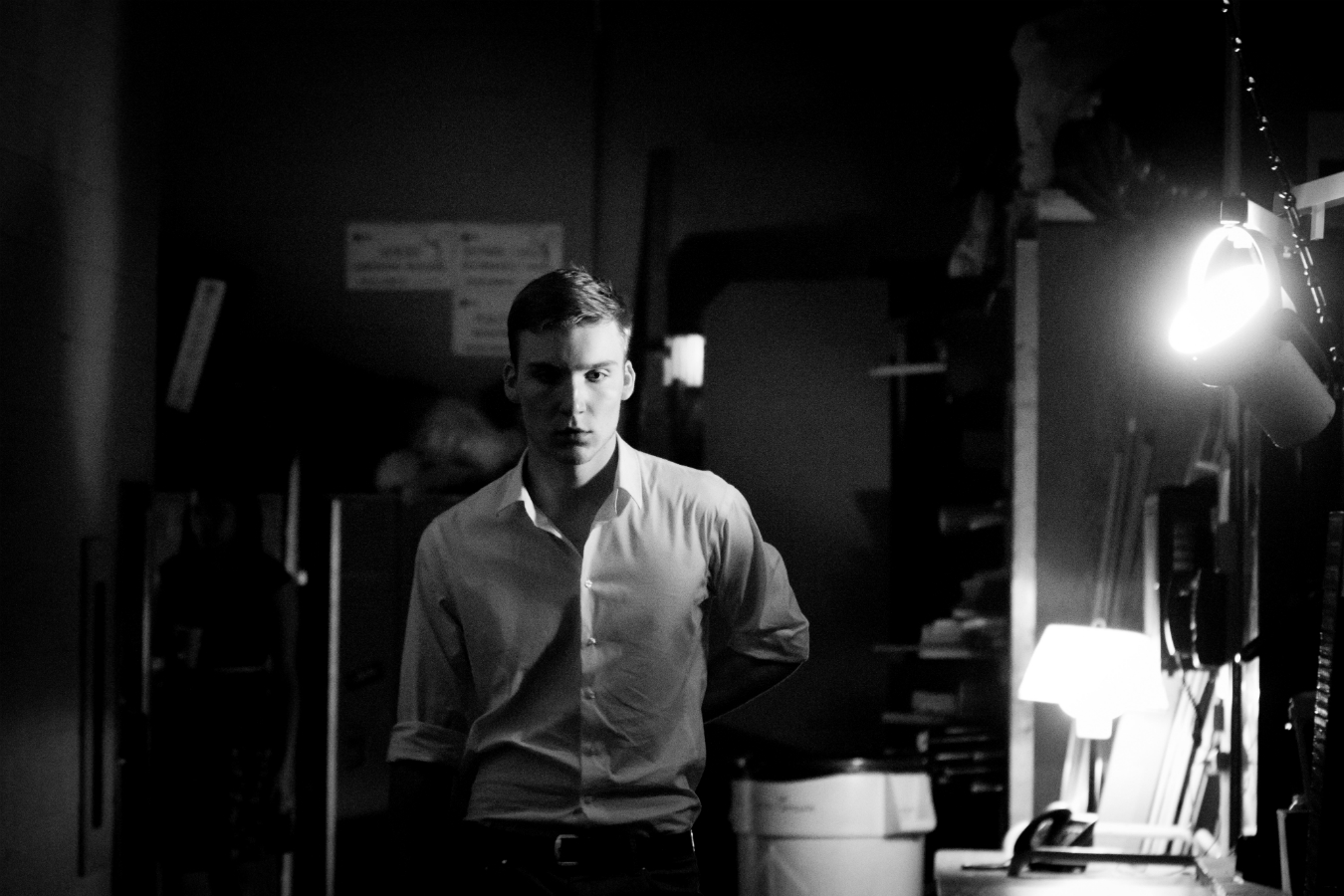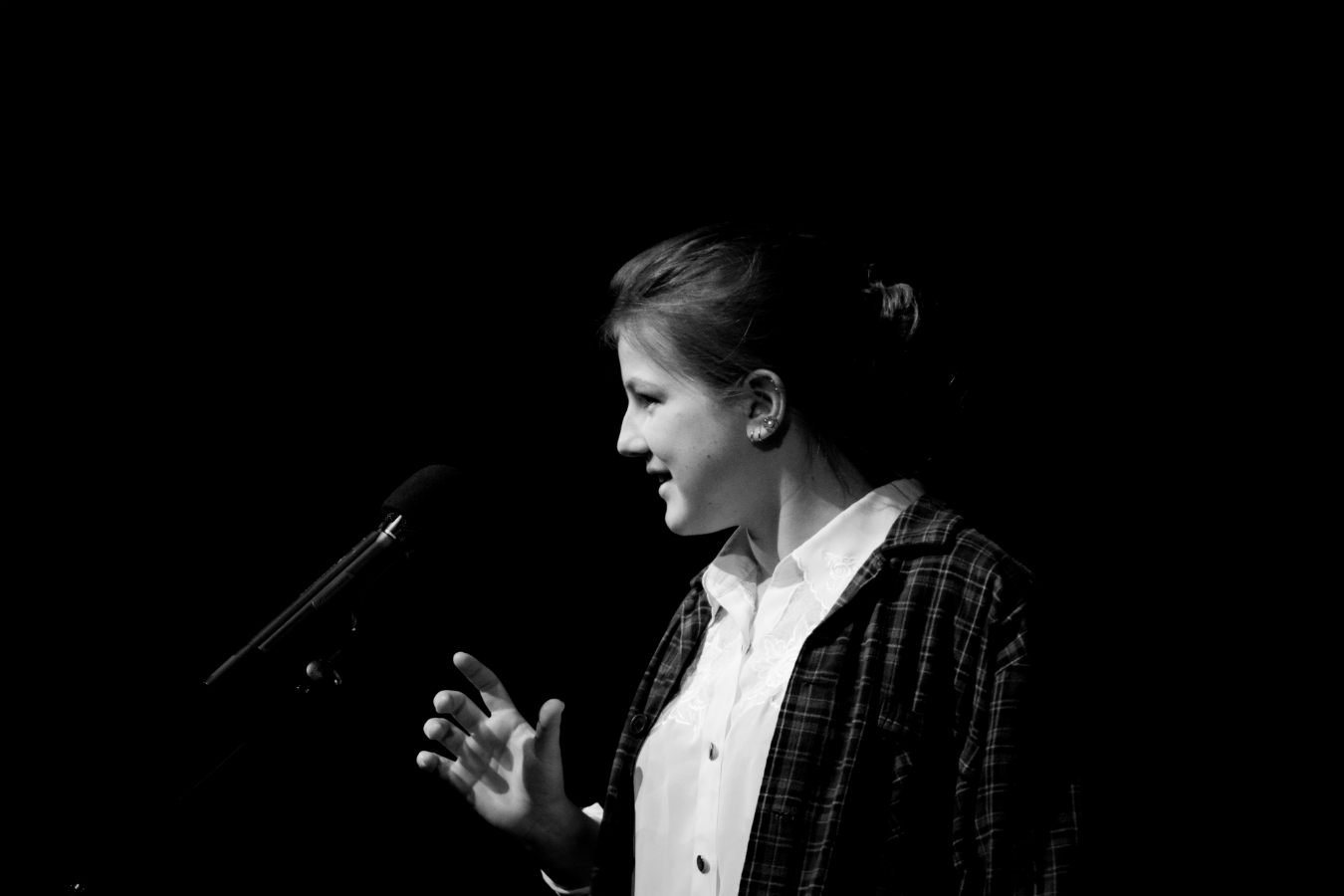Poetry is alive and well among our youth, and Canada-wide contest Poetry in Voice emphasizes that, in a celebratory set of competitions and an amazing display of performance prowess.
Students in grades nine to 12 choose a poem they like, memorize it, and then recite it for their peers and teachers, with the potential to move from classroom to city-wide, then provincial, and ultimately to a national finale. Each student is competing for $25,000 in prizes—both for themselves and for their schools’ libraries. Now in its seventh year, the contest reaches over 1,000 schools; quite a leap from the meagre 12 involved in 2010.
Poetry in Voice director David Smith says matter-of-factly that “talk of the death of poetry persists, but it will never happen. I think youth itself is intrinsically poetic: all that passion, those emotions.” Smith’s belief in the event and what it can do for Canada’s young population is abundant. “It is called a competition, and yes, there are judges,” he explains over the phone from Montreal, where the organization is headquartered. “But really, it is more of a love-in for a sweet crowd of kids; many of them become pen-pals through the competition. And another thing about it is that poetry recitation is an amazing way to begin to learn a second language. You have to hold the words in your mind, so it is the same process, really, as thinking in a new language. So many students have told us this.”
The way it works is that any school teacher can enter a class in the competition, and students volunteer to compete. Each pupil chooses from a fairly lengthy list of poems on the Poetry in Voice website (this year, in honour of Canada’s 150th birthday of confederation, an emphasis was put on Canadian authors). Smith says the choices on the list are “pretty agnostic. We take poems from anywhere, on a wide range of subject matter. With permission, of course.” Each poem has a set of study questions, and often links to video performances of the pieces, or a commentary by the writer—all fantastic resource materials.
The 2017 national finals—featuring 24 kids, even a few from Vancouver, selected from 10,000 competitors across the country—take place in Vancouver on April 20 at SFU Woodwards (a different city hosts each year). There are other events surrounding the actual championship, too, such as a workshop about Indigenous poetry and identity, and a Vancouver-wide poetry scavenger hunt (locals are free to join in the fun of the latter, as well).
Overall, the power of poetry is that it seems to defy age and time. “It is fascinating how Shakespeare, for one, still seems to speak a language these kids understand,” explains Smith. “And in the past, we’ve had performances that were kind of poetry slam, with Sylvia Plath as a central point of attention. Or, last year, i am graffiti by Leanne Simpson had a huge number of recitations. This year, Wolf Lake by Elizabeth Bachinsky is having a good run.” These are dark, sensitive works, demonstrating the depth of understanding that our kids have. Poetry in Voice is, in its most basic element, a youthful affirmation—of poems, of performance, of life.
Get stories delivered right to your inbox every Thursday.











